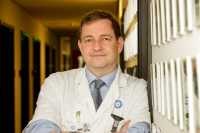07 Apr Earplugs Reduce Hearing Loss From Loud Concerts
MedicalResearch.com Interview with:
Prof. dr. Wilko Grolman MD, PhD
Department of Otolaryngology Head and Neck Surgery
Brain Center Rudolf Magnus,
University Medical Center Utrecht, the Netherlands.
Linkedin: https://www.linkedin.com/in/wilko-grolman-73a4927
MedicalResearch.com: What is the background for this study? What are the main findings?
Dr. Grolman: The importance of healthy hearing is extremely important for us humans. Decline in hearing will potentially affect not only our functional status but also our emotional and social health but also our economic status. It is impossible to imagine what the impact of losing one’s hearing ability is while still having a healthy hearing. Although many of us will eventually suffer from reduced hearing as part of the physiological effect of getting older, scientists are alarmed by the fact that hearing loss is on the rise and especially the number of youngsters that are affected is increasing.
The WHO in their report of March 2015 reveal some alarming statistics; 360 million people have disabling hearing loss. In the acquired hearing loss group, excessive noise from personal audio devices and concert and festival visits has gained importance. Occupational noise has long been recognized as a source of acquired hearing loss. The WHO recognizes that half of the hearing loss cases can be prevented by primary prevention. For the noise induced hearing loss category, it is important to reduce exposure to loud sounds by raising awareness about the risks, implement relevant legislation and to encourage the use of personal protective devices such as earplugs, noise-canceling earphones and headphones. Our previous systematic review of the effectiveness of wearing earplugs to music venues showed that there were only two studies on this subject of which only one was a randomized clinical trial but had a major different set-up.
Our study set-up: Our group conducted a Randomized single blind Clinical Trial (RCT) to evaluate the effectiveness of earplugs during festival visits. Fifty one healthy normal-hearing volunteers were recruited via social media. By randomization they were either allocated in the earplug user group or in the non-user group. Before and after the 4½ hour festival visit these individuals had to undergo a series of subjective and objective hearing test and questionnaires at a special location right beside the festival grounds where (audio) professionals in especially sound treated environment did all the evaluations. All the professionals were blinded during the acquisition of the data for if the person that was being evaluated had used earplugs or not. The two researchers Geerte Ramakers and Véronique Kraaijenga that analyzed the data were also blinded.
MedicalResearch.com: What are the main findings?
Dr. Grolman: We found that 42% in de non-earplug group had measurable hearing loss after the festival compared to 8% in de earplug group which is a significant difference. Although this temporary threshold shift (TTS) normally recovers in the period after the concert it is believed to contribute to permanent hearing loss in the longer run. The objective measurements DPOAE showed a similar negative effect for the non-earplug user group.
Newly induced ringing in the ears (tinnitus) following the sound exposure was 40% in the non-earplug group compared to 12% in the earplug group which is also a significant difference.
MedicalResearch.com: What should clinicians and patients take away from your report?
Dr. Grolman: Our study design (a single blinded RCT) adds proof to the scarce scientific evidence and knowledge about the effectiveness of earplugs1. We proof that earplugs are effective in preventing temporary hearing loss induced by loud recreational music. This evidence may help in the prevention programs that raise awareness of the risks of loud music especially in the younger more exposed generations.
MedicalResearch.com: Is there anything else you would like to add?
Dr. Grolman: This study was only possible with the contribution and support of the people from: Department of Otolaryngology of the University Medical Center (UMC Utrecht), MTV Benelux (Viacom), MTV Soundkeepr, van Boxtel Hoorwinkels and Oticon Medical.
MedicalResearch.com: Thank you for your contribution to the MedicalResearch.com community.
Citation:
Ramakers GJ, Kraaijenga VC, Cattani G, van Zanten GA, Grolman W. Effectiveness of Earplugs in Preventing Recreational Noise–Induced Hearing Loss: A Randomized Clinical Trial. JAMA Otolaryngol Head Neck Surg. Published online April 07, 2016. doi:10.1001/jamaoto.2016.0225.
[wysija_form id=”5″]
Note: Content is Not intended as medical advice. Please consult your health care provider regarding your specific medical condition and questions.
More Medical Research Interviews on MedicalResearch.com
Last Updated on April 7, 2016 by Marie Benz MD FAAD

